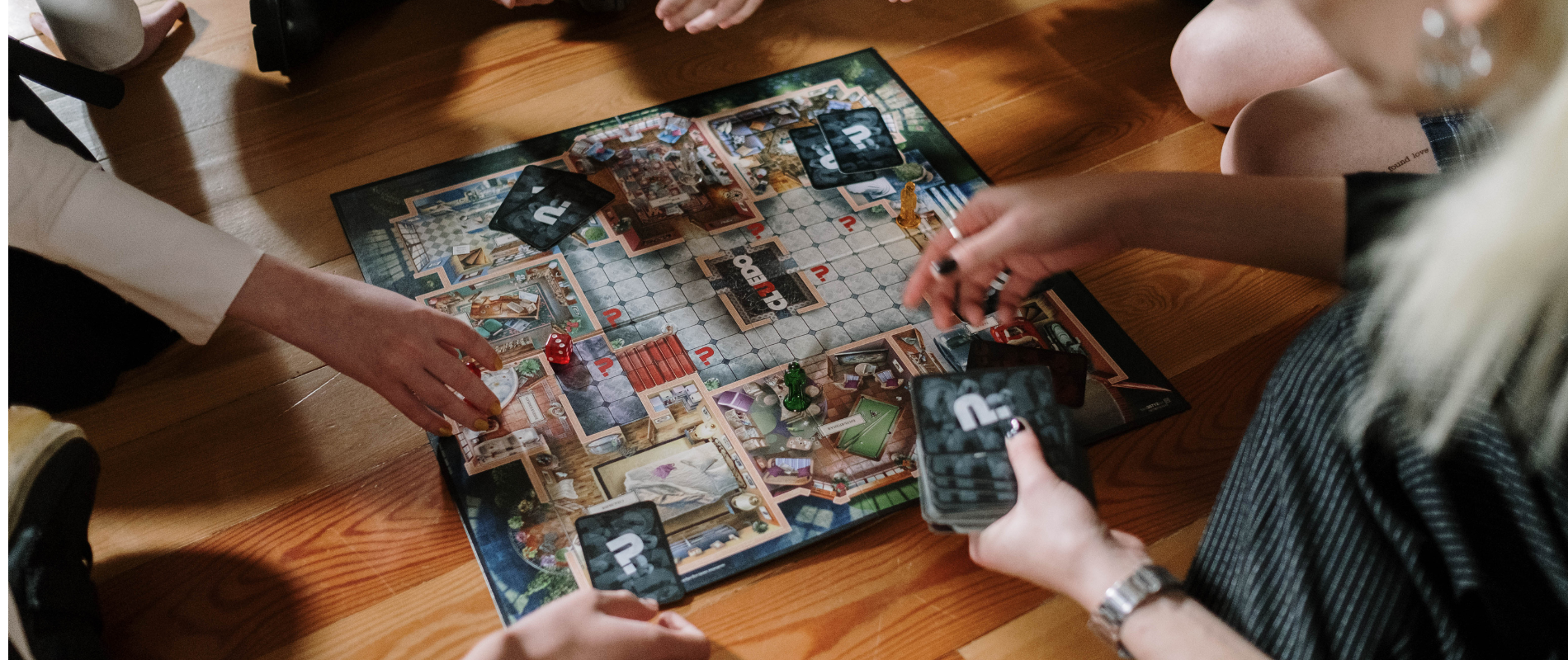Gambling has long been a fascinating aspect of many cultures, but it holds a particularly intriguing place within Asian societies. From the bustling casinos in Macau to the traditional betting games played during festivals, why does gambling seem to resonate so profoundly with Asian communities? This piece delves into the cultural, social, and psychological underpinnings that fuel this passion. Join us as we explore the multifaceted reasons behind Asia’s love affair with gambling.
Cultural Significance of Luck
The fascination with gambling within Asian cultures can often be traced back to the deep-rooted belief in the concept of luck and fortune. This cultural significance of luck transcends mere superstition, embedding itself into the traditions, festivities, and daily practices of various Asian societies. It’s not merely about the potential financial gain but rather the thrill of testing one’s fate against the odds, which is seen as a direct reflection of life’s own unpredictability.
In many Asian cultures, the concept of luck is intertwined with the cosmic balance of yin and yang, where luck is believed to be influenced by the alignment of spiritual and physical forces. This belief system encourages the view that luck can be attracted or repelled based on one’s actions, thoughts, and even the environment, thus playing a crucial role in decision-making and lifestyle choices. The New Year celebrations, for example, are replete with rituals and practices specifically designed to usher in good luck and fortune for the coming year. Gambling during these times is not only a form of entertainment but also a symbolic act of inviting prosperity.
Moreover, the concept of luck in Asian cultures is often seen as a measure of virtue and moral standing. It is believed that good luck is bestowed upon those who lead a righteous life. This intertwining of moral values and fortune adds a layer of cultural endorsement to gambling, which is perceived as a test of one’s character and moral fiber. Therefore, the act of gambling, especially during significant festivals, is imbued with a sense of cultural duty to ascertain one’s alignment with the forces of luck and fortune.
Understanding Luck in Asian Gambling Practices
Further insights into the cultural significance of luck in Asian gambling reveal a complex tapestry of beliefs, practices, and rituals. This deep-seated cultural perspective sees luck not just as a chance occurrence but as a tangible force that can be influenced through human action and moral conduct. The practice of wearing certain colors, engaging in specific rituals before gambling, or choosing auspicious times to gamble are all manifestations of this belief system. These practices showcase a unique blend of fatalism and proactive engagement with fate, a concept that is as intriguing as it is complex.
- The New Year: A time for renewing luck and fortune through gambling.
- Color symbolism: Wearing red to attract good luck while gambling.
- Numerology: Preference for certain numbers believed to bring good luck.
- Rituals and charms: Using specific rituals or carrying charms to improve gambling fortunes.
- Moral conduct: The belief that living a virtuous life leads to better luck in gambling.
These layers of cultural beliefs and practices around luck significantly influence gambling behaviors in Asian societies. It’s a worldview that sees luck as a pivotal force in the universe, one that humans can align with through right action, moral living, and adherence to traditions. This perspective provides a fascinating backdrop to the popularity of gambling in Asia, highlighting the cultural depth and complexity behind what might otherwise be viewed as mere entertainment or vice.
Exploring the Historical Roots of Gambling in Asian Cultures
The fascination with gambling among Asian populations is not a recent phenomenon but is deeply rooted in history and culture. Gambling in Asia has a rich heritage, with evidence of gambling activities dating back to ancient times. This long-standing tradition has been passed down through generations, becoming an integral part of social interactions and celebrations. In many Asian societies, gambling is not merely seen as a form of entertainment but is often intertwined with cultural rituals and festivals, signifying luck and fortune.
Moreover, the concept of fate and destiny plays a significant role in Asian cultures, influencing attitudes towards gambling. Many believe that success in gambling is a reflection of one’s favor with the gods or alignment with the forces of the universe. This spiritual dimension adds a layer of cultural acceptance and engagement with gambling activities. Additionally, the social aspect of gambling, where communities come together to play games of chance during celebrations, reinforces its cultural significance and widespread appeal.
Another factor contributing to the love for gambling in Asia is the rise of modern gambling hubs, such as Macau and Singapore, which have become symbols of prosperity and economic success. These destinations attract millions of visitors annually, further embedding gambling into the cultural and economic fabric of the region.
| Aspect | Cultural Significance | Modern Influence |
|---|---|---|
| Historical Roots | Deeply embedded in traditions and rituals | Revitalized through tourism and casinos |
| Spiritual Beliefs | Associated with fate and destiny | Influences attitudes towards gambling success |
| Social Aspect | Facilitates community bonding | Encourages participation in gambling activities |
| Economic Impact | Historically a form of entertainment | Now a major contributor to regional economies |
The enduring love for gambling in Asian cultures is a multifaceted phenomenon, deeply interwoven with historical, social, and spiritual dimensions. This complex relationship continues to evolve, reflecting changes in societal attitudes, economic conditions, and the global gambling landscape. Understanding this context provides valuable insights into the cultural fascinations with gambling in Asia and its continued significance in contemporary society.
Social Aspects of Gambling
The social dimensions of gambling in Asian cultures are complex and deeply interwoven with societal values and norms. At its core, gambling is not merely a solitary activity but a conduit for social interaction and community bonding. In many Asian societies, gambling activities, especially those during festivals and celebrations, are seen as a means to foster social cohesion. The communal aspect of gambling, whether it’s around the mahjong tables or during the Lunar New Year festivities, underpins its acceptance and prevalence.
Moreover, the concept of luck and fortune is a significant cultural factor that drives the fascination with gambling. This is not just about the chance of winning but also about the social ritual of testing one’s luck and, by extension, receiving societal approval and admiration for being fortunate. The act of gambling becomes a shared cultural narrative, encapsulating the hopes and aspirations of individuals within the community. Thus, gambling venues are often seen as arenas where social hierarchies can be temporarily dissolved, allowing for more fluid interactions among different social strata.
Another pivotal aspect is the legacy of gambling in many Asian cultures, where historical and traditional games have been passed down through generations. These games are not only a form of entertainment but also carry cultural significance, serving as a link to the past and a form of preserving heritage. Therefore, the participation in gambling goes beyond individual enjoyment and becomes a part of cultural identity and continuity.
Further Insights into the Social Dynamics of Gambling
Exploring deeper into the social aspects of gambling, it becomes evident that these activities serve as a mirror reflecting broader societal values and tensions. For instance, the emphasis on luck and fortune in gambling is parallel to the larger cultural importance placed on fate and destiny in many Asian societies. This philosophical underpinning adds a layer of cultural acceptance to gambling, distinguishing it from mere financial speculation to an activity rich with symbolic meaning.
Additionally, gambling’s role in celebrating success and navigating social relationships highlights its function as a social lubricant. It’s not uncommon for business deals or personal bonds to be strengthened over a game, illustrating how gambling activities are interlinked with the fabric of social interactions and networking in Asian contexts.
- The communal nature of gambling and its role in fostering social cohesion.
- How gambling acts as a conduit for expressing and testing luck within a cultural framework.
- The significance of traditional and historical gambling games in preserving cultural heritage.
- Reflecting broader societal values through the lens of gambling, such as the emphasis on fate and destiny.
- Utilization of gambling as a means to navigate and enhance social relationships and networks.
The Role of Superstitions
Superstitions play a pivotal role in the gambling habits of many Asian cultures. These beliefs, often rooted in centuries-old traditions and folklore, significantly impact decision-making processes and strategies employed during gambling. In many Asian societies, gambling is not just seen as a form of entertainment or a way to make quick money but is deeply intertwined with cultural practices and superstitions that dictate when, how, and why individuals gamble.
One of the core reasons behind the prevalence of superstitions in Asian gambling culture is the strong belief in luck and fortune. Many gamblers rely on specific rituals or carry charms believed to bring good luck or ward off bad luck. The faith in these superstitions is so strong that it can dictate the games they choose to play, the numbers they select, and even the specific days and times deemed auspicious for gambling. The concept of “feng shui,” for example, can influence the layout of casinos and the direction slot machines face, all in the pursuit of creating a favorable environment that attracts good fortune.
Moreover, the influence of numerology on gambling practices cannot be overstated. Certain numbers are considered lucky or unlucky based on their pronunciation, which can sound similar to words associated with prosperity or death. This belief can significantly affect how bets are placed or the enthusiasm towards certain casino games. The Lunar New Year, for instance, is a time when gambling activity spikes, driven by the belief that wins during this period foretell a year of good luck and success.
| Superstition | Origin | Impact on Gambling |
|---|---|---|
| Lucky numbers | Numerology | Choice of numbers in lotteries, roulette, etc. |
| Feng shui | Chinese philosophy | Layout of gambling spaces, direction of slot machines |
| Lucky charms | Various | Carried by gamblers for good luck |
| Auspicious days | Lunar calendar | Choosing specific days for gambling activities |
| Color superstitions | Cultural associations | Preference for certain colors while gambling |
Understanding the role of superstitions in Asian gambling cultures offers valuable insights into the psychological factors that influence gamblers’ behaviors. These beliefs, whether based on ancient traditions or personal experiences, create a unique gambling environment where luck and fortune are central themes. This cultural fascination with superstition and luck not only shapes individual gambling practices but also influences the design and operation of gambling establishments, making them a vibrant and integral part of Asian culture and entertainment.
Moreover, it’s crucial to acknowledge that while superstitions play a significant role in the gambling world, they also reflect broader cultural values and traditions. They are a window into understanding how luck and fortune are perceived and pursued across different Asian societies. This deep-rooted connection between culture and gambling practices highlights the importance of respecting and appreciating the diverse beliefs and traditions that contribute to the global gambling landscape.
Economic Factors and Aspirations
The fascination with gambling within Asian cultures can be intricately linked to various economic factors and aspirations that pervade these societies. For many, gambling is not just a leisure activity but a hopeful venture towards achieving financial stability or prosperity. The lure of quick wealth and the chance to transform one’s socioeconomic status overnight can be particularly appealing in regions where traditional routes to financial success may seem arduous or inaccessible.
In countries where economic disparities are pronounced, gambling presents itself as a beacon of hope for many individuals striving to improve their living conditions. This is compounded by the cultural prestige associated with success and wealth in many Asian societies. The aspiration to ascend the socio-economic ladder and the societal pressure to achieve success drive individuals towards gambling as a viable pathway to realize their dreams. Furthermore, the proliferation of gambling venues and the accessibility of online gambling platforms have made it easier for people to engage in these activities, sometimes overlooking the potential risks involved.
Another dimension to consider is the role of remittances in economies with a high diaspora. For families receiving money from relatives working abroad, the temptation to gamble a portion of these funds in the hope of increasing them can be compelling. The rationale behind this is not merely based on a desire for wealth but also the intention to secure a better future for their families. This underscores the complex interplay between economic aspirations and gambling behavior in Asian cultures.
Understanding the Economic Psychology Behind Gambling
Delving deeper into the economic psychology behind gambling, it becomes evident that cognitive biases and social influences play a significant role. The overestimation of winning probabilities, spurred by tales of those who have won big, often overshadows the statistical realities of gambling odds. Socially, the celebration of winners in communities and media further fuels the allure of gambling, creating a cycle of aspiration and participation that is hard to break. This phenomenon is not unique to Asian cultures but is perhaps more pronounced due to the strong emphasis on financial success and societal status.
| Factor | Influence on Gambling | Outcome |
|---|---|---|
| Economic Disparities | Drives individuals towards gambling as a means to improve their socioeconomic status. | Increased gambling participation |
| Cultural Prestige of Wealth | Enhances the appeal of gambling as a quick route to success. | Heightened societal pressure to gamble |
| Accessibility of Gambling | Makes it easier for individuals to engage in gambling activities. | Wider participation across socioeconomic classes |
| Remittances | Provides capital that can be gambled in hopes of wealth multiplication. | Risk of financial instability for families |
| Social and Media Influence | Creates a cycle of aspiration and participation through the celebration of winners. | Cultural normalization of gambling |
Gambling in Popular Culture
The representation of gambling within popular culture has significantly contributed to its fascination, particularly in Asian societies. From the glamorous depictions in movies to its thematic presence in literature and digital media, gambling has been portrayed as an activity that is not only thrilling but also deeply intertwined with luck, fate, and fortune. These elements are especially resonant within many Asian cultures, where luck and fortune hold significant societal values. The media often showcases characters who overcome adversity through gambling, further embedding the allure of ‘quick success’ within the cultural psyche.
Moreover, the celebration of gambling in popular culture has led to the normalization of betting and gaming, making it an accepted form of entertainment among various social groups. Television shows and online platforms often depict gambling scenarios in a way that emphasizes skill, strategy, and intelligence, rather than mere chance. This portrayal appeals to the viewer’s sense of cunning and acumen, making the idea of gambling more palatable and even desirable. In many Asian countries, gambling-themed games and shows are not just common; they’re a significant part of entertainment culture, further fueling the public’s interest in actual gambling activities.
The glorification of gambling wins in movies and the strategic complexity shown in card game dramas also play into the cultural narratives of honor and personal achievement, common to many Asian cultures. This narrative blend of luck, skill, and social ascent through gambling victories feeds into the larger fabric of popular culture, making gambling a fascinating, albeit controversial, element of societal interest.
| Medium | Representation | Impact on Perception |
|---|---|---|
| Movies | Glamorous, thrilling | Increases allure |
| Literature | Complex characters, moral lessons | Enhances cultural narratives |
| Television | Strategic, skill-based | Normalizes gambling |
| Online Media | Accessible, widespread | Expands reach |
| Video Games | Interactive, engaging | Encourages participation |
The intersection of gambling with popular culture in Asia is a multifaceted phenomenon that reflects deeper cultural values and societal norms. By understanding the portrayal and reception of gambling within these contexts, we gain insights into its widespread appeal and the challenges it presents. As gambling continues to evolve with technology and legal frameworks, its place in popular culture will likely adapt, reflecting and influencing changes in societal attitudes and values.
In conclusion, the fascination with gambling in Asian societies is not merely a product of legal or economic factors but is deeply rooted in cultural narratives and popular culture. The portrayal of gambling in various media forms shapes and is shaped by societal values, making it a compelling area of study and understanding. As we move forward, it will be interesting to see how these cultural fascinations adapt to changing times and technologies, and what this will mean for the future of gambling in Asia and beyond.
Laura Johnson is a seasoned board game strategist with a knack for blending game theory and betting insights. With over a decade of experience in the gaming community, Laura excels in analyzing game mechanics and predicting outcomes, both on the board and in betting scenarios. Her expertise extends to helping players enhance their strategies, whether they’re competing in a game night or placing bets on game-related outcomes. Laura’s unique approach makes her a valuable resource for those looking to elevate their gaming and betting experiences.







